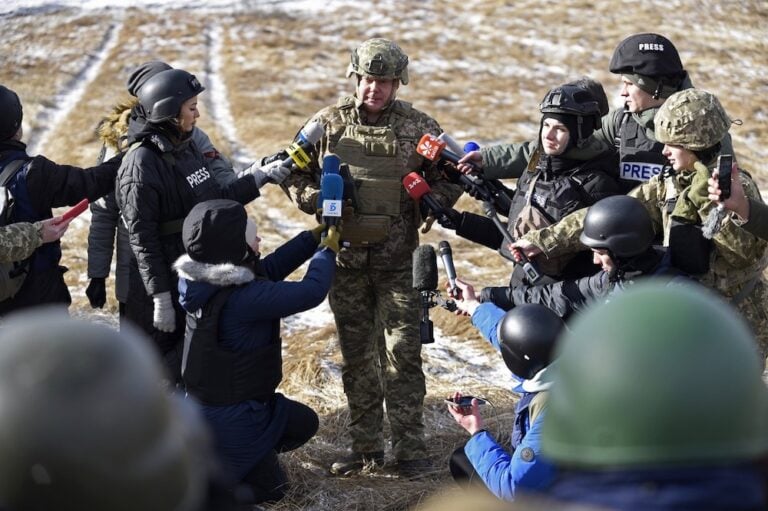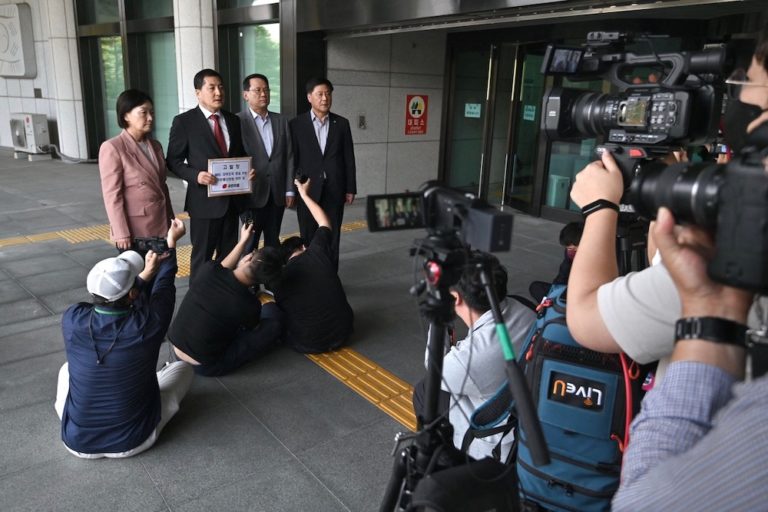(WiPC/IFEX) – International PEN believes that there are a number of writers in prison in South Korea who are guilty of no criminal activity, but have been sentenced merely as a result of their freely-expressed opinions. Although they may have infringed the National Security Law, PEN believes that this law is itself problematic: its vague, […]
(WiPC/IFEX) – International PEN believes that there are a number
of writers in prison in South Korea who are guilty of no criminal
activity, but have been sentenced merely as a result of their
freely-expressed opinions. Although they may have infringed the
National Security Law, PEN believes that this law is itself
problematic: its vague, over-broad language has allowed the
authorities to detain, try and convict men and women who have
done nothing other than exercise their right to freedom of speech
and of association. PEN has urged the Government of South Korea
on many occasions to revise the National Security Law so that its
scope to undermine what is a basic human right is removed.
Further, PEN notes that, at present, South Korea is a country
where writers on its case list are serving some of the longest
sentences in the world. The sentences range from three-and-a-half
years to life imprisonment. Such harsh terms are utterly
indefensible, given that none of these people have been convicted
of perpetrating acts of violence.
PEN also notes that the United Nations Working Group on Arbitrary
Detention has officially declared that the imprisonment of author
Hwang Suk-young is arbitrary and thus unwarranted.
As South Korea approaches its elections, a time when its citizens
everywhere will be exercising their right to freedom of
expression in a most fundamental way, PEN urges the current
Government to declare a full amnesty for all writers, editors and
journalists in South Korea detained merely for the expression of
their views.


